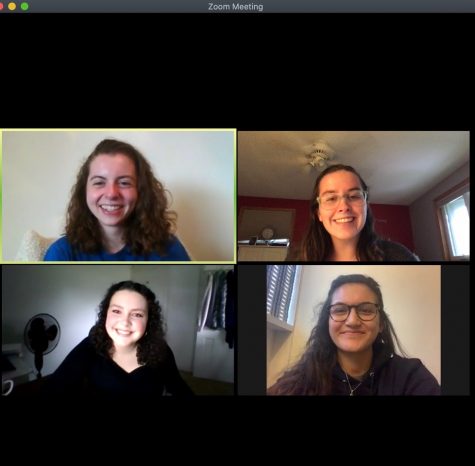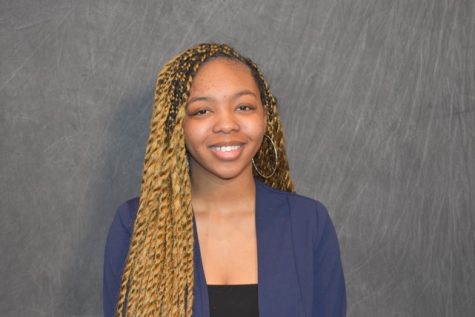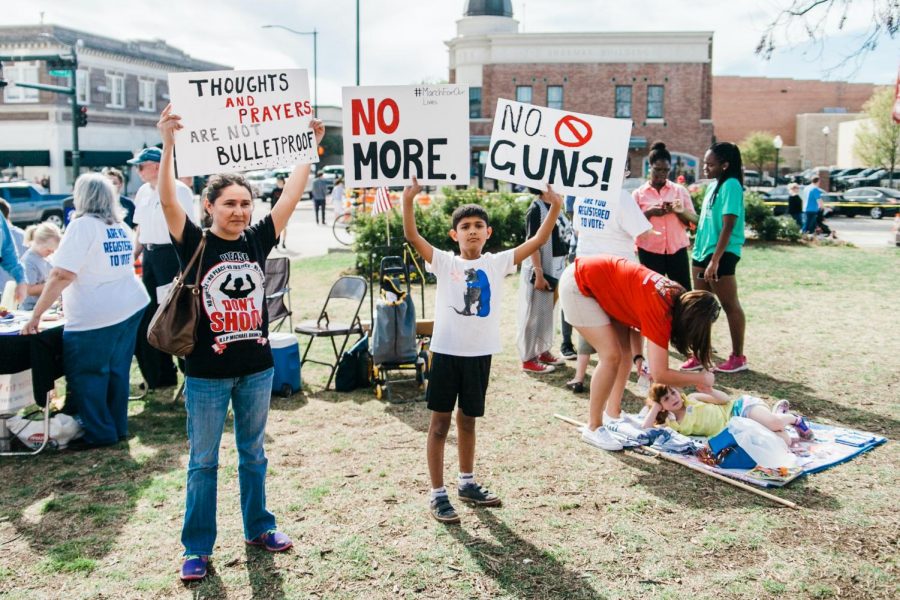Legislative initiatives for gun control
Nov 24, 2020
In 2019, the United States was the site of 417 mass shootings, resulting in 15,381 deaths and 29,568 injuries, according to CBS.
Gun control activist Katy Zoller says it’s time for a change. Along with Gabby Lambesis, she co-leads the John Carroll University Branch of Students Demand Action . SDA is the high school and college equivalent to Everytown, a leader of the gun violence protection movement. Zoller says everyone joins for a different reason. For her, the Parkland shooting affected her greatly.

“Adults weren’t doing enough to change the situation, and thoughts and prayers aren’t going to save lives,” said Zoller.
They have regular meetings, and the next one after the interview for this article was on Oct. 10, when they were cold-calling citizens of voting age, hoping to encourage them to vote.
SDA isn’t trying to eradicate the Second Amendment, Zoller said. Zoller is extremely passionate about the issues of gun violence, and she knows that real change has to happen at the legislative level.
She’s not the only one.
Naudia Loftis ‘20 shares Zoller’s enthusiasm for affecting gun reform. A member of the Arrupe Scholars during her years at John Carroll, Loftis used her skills to create change after the tragic shooting of Tamir Rice. She was on the executive board of Black Students in Action while at JCU.
“My passion for social justice began at a young age,” said Loftis. “Growing up in Cleveland, Ohio, I witnessed a lot of violence. After losing multiple family members and friends to violence, I figured I had to step up. At the age of 17, I began organizing marches and rallies in my city to bring people together.”
Her work to end violence is centered around her community in Cleveland’s Kinsman neighborhood. She has been part of numerous initiatives to help bring the issues of gun violence to the attention of local and state government officials, particularly regarding gun violence revolving around minorities. Along with Zoller, she too believes that the change needs to happen at a higher level, although Loftis wants to see changes with law enforcement. Loftis firmly believes that officers need ongoing training, so they can do their jobs safely to prevent innocent men and women from being shot by overzealous law enforcement personnel.
Another problem that both women want to see addressed is known as the “boyfriend loophole.” This issue is characterized as domestic violence being treated as a misdemeanor. This law exists in some states and not others and comes down to how that state defines an intimate partner. To be considered an intimate partner, the abuser has to live or have lived with the victim, be married or a former spouse of the victim, or have a child with the victim. If none of those criteria are met, then it is a violent crime, not a misdemeanor domestic crime. This is a big difference because those charged with a misdemeanor are still permitted to own a gun.

A similar loophole exists whereby, even if a convicted felon cannot own a gun, their spouse or girlfriend can. If the partner has a clean record, nothing is stopping her from going out and getting whatever she wants, which gives the felon access to a firearm.
University of Connecticut public policy officer Kerri Raissian hopes to change that with the Lautenberg Amendment. Her law, which was passed when and where?, led to 17% fewer women being killed by a domestic partner due to gun violence by closing the boyfriend loophole.
While these people are doing tremendous work at the local level, Democratic politicians on a larger scale are also looking to create change. One of these proposed changes is gun buybacks. These programs use a monetary incentive to get rid of guns, encouraging people to sell their guns to the government, thereby getting guns off the street.
According to an article by the Harvard Shorenstein Journalist’s Resource, the Democratic candidates who were pushing for these buybacks during the primaries last year included: Michael Bennet, Michael Bloomberg, Joe Biden, Pete Buttigieg, John Delaney, Tulsi Gabbard, Amy Klobuchar, Bernie Sanders, Elizabeth Warren and Tom Steyer. Another incentive is that people who turn in their guns would be asked no questions, as the goal is simply to get these firearms out of the community. It is worth noting that most of the guns traded in at programs like these were obtained legally and used for either home defense or sporting activities.
Another key proposal by advocates of gun control is universal background checks. The list of presidential candidates supporting this initiative during last year’s primaries is, according to the same Journalist’s Resource article: Cory Booker, Pete Buttigieg, Julian Castro, Kamala Harris, Amy Klobuchar, Bernie Sanders, Tom Steyer, Elizabeth Warren, Marianne Williamson and Andrew Yang. They are endorsing a policy that would make everyone who wants to legally buy a gun be subject to a criminal and mental background check. This would also be implemented by pawn shops and used-gun dealers.
Some argue that the most important of these legislative pushes is for better serial number tracing, so law enforcement knows exactly what guns belong to whom. This would make people less inclined to gun violence, it is argued, as the gun could be traced right back to the owner.
Regardless of where you fall on the political spectrum, improving public safety is an area most can agree on. Most groups want to keep the Second Amendment but make changes so that citizens cannot access illegal firearms or firearms that are deemed too dangerous.
Zoller and Loftis have decided to take action and are being recognized for their tireless efforts to curb gun violence. If more people follow their lead, lives will be saved.












